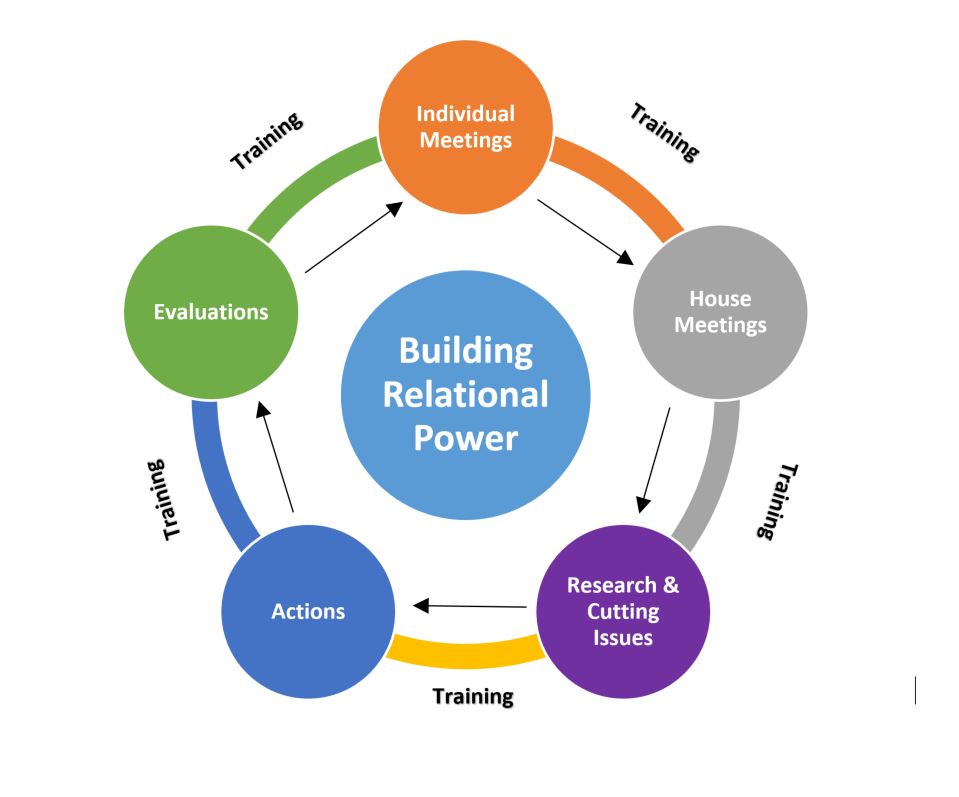HOW THE ORGANIZING PROCESS WORKS
The golden rule of organizing is to never do for others what they can do for themselves.
CLJ organizers support leaders in identifying, researching, and taking action on issues that impact them. This is concrete action. Below outlines the normal steps of an organizing campaign.

- Individual Meetings: Individual meetings are the fundamental building blocks of organizing together. It is an opportunity for two souls to connect face-to-face.
- House Meetings: 60-90 minute conversations with 7-9 people led by a leader. This is an opportunity for people to deepen relationship, engage one another, and together imagine how to improve our neighborhood and city. Effective house meetings are built around good storytelling: stories that illustrate people’s deepest concerns and stir us to action.
- Research & Cutting Issues: Common issues that arise from the house meetings are then researched and cut into campaigns that are specific and resolvable.
- Action & Evaluation: We hold structured public actions where leaders and organizers confront decision makers capable of effecting desired change.
